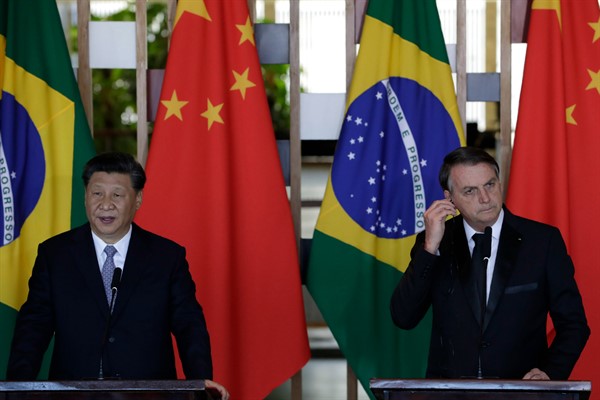Loading your audio article
President Jair Bolsonaro assumed office in 2019 with the goal of aligning Brazil’s foreign policy with Western democracies and ending the economic dependence on China that grew markedly under his predecessors in the left-wing Workers’ Party. In his presidential campaign, Bolsonaro positioned himself as a candidate of the right, speaking out against “socialism” and “communism,” with pointed references to neighboring Venezuela, and openly identified with the right-wing populist message of U.S. President Donald Trump.
So far, Bolsonaro’s attempt to reorient Brazil’s foreign policy toward the U.S. has met with mixed success, in part because China’s leaders have outworked their counterparts in both Washington and Brasilia. However, amid the COVID-19 pandemic and intensifying U.S.-China competition over next-generation 5G networks, Washington is expressing continued interest in deepening ties with Brazil, potentially reenergizing Bolsonaro’s realignment plans.
As soon as Bolsonaro took office, his administration began policy discussions on greater economic integration with the U.S., but China’s enduring influence in Brazil has not been easy to overcome. After realizing that it was at risk of losing its top trading partner in Latin America, Beijing sought new opportunities to influence policymakers in Bolsonaro’s government. China’s goal was to push back on the pro-American positions advocated by Brazil’s Ministry of Foreign Affairs and several of Bolsonaro’s presidential advisers.

